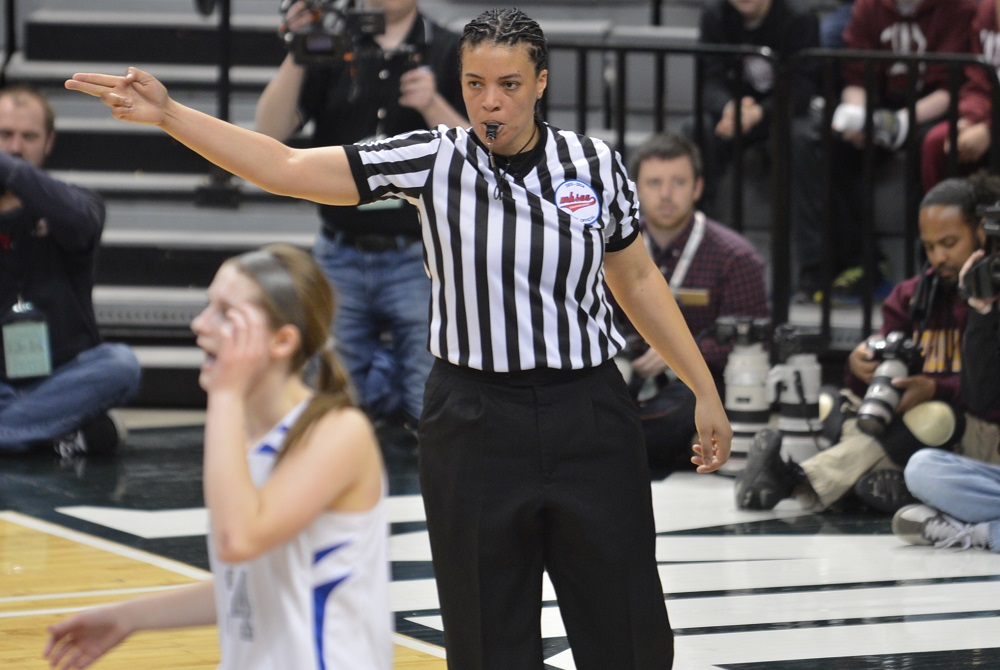
Be the Referee: Point After Touchdown
October 20, 2016
This week, MHSAA assistant director Mark Uyl explains how high school rules differ from those used by colleges when it comes to what's allowed after extra-point tries.
Be The Referee is a series of short messages designed to help educate people on the rules of different sports, to help them better understand the art of officiating, and to recruit officials.
Below is this week's segment – Point After Touchdown - Listen
For many years at the pro and college levels of football, the P-A-T or the extra point kick, really became a ho-hum play.
Last year in the NFL, they tried to make the play more exciting by moving the kickers back, making it almost the distance of a medium-range field goal.
Under college rules, they allow the other team – the defense, whenever they get the ball – to try to return it all the way to the other end with the ability to score two points.
The next high school game you’re at, know this: that once the defensive team gets possession of the ball on an extra point or try for point, the try is over and the defense cannot score any points.
Past editions
Oct. 13: Untimed Down - Listen
Oct. 6: Soccer Penalty Kick Change - Listen
Sept. 29: Preparation for Officials - Listen
Sept 22: You Make the Call: Returning Kickoffs - Listen
Sept. 15: Concussions - Listen
Sept 8: Equipment Covering the Knees - Listen
Sept. 1: Play Clock Experiment - Listen
Aug. 25: Clipping in the Free Blocking Zone - Listen

Be the Referee: Basketball Timeout
By
Brent Rice
MHSAA Assistant Director
February 10, 2022
Be The Referee is a series of short messages designed to help educate people on the rules of different sports, to help them better understand the art of officiating, and to recruit officials.
Below is this week's segment – Basketball Timeout - Listen
We are on the basketball court today where a wild pass from the point guard is headed out of bounds. A teammate jumps and is just barely able to catch the pass, but his momentum is carrying him out of bounds before he lands. While still airborne, and in possession of the ball, he calls time out.
Should the official grant him the time out – or is he out of bounds, with possession going to the defending team?
Since the player jumped from inbounds, gained possession, and called timeout before touching down out of bounds – the time out should be granted. His acrobatic play and quick thinking saved his team from committing a turnover, and they’ll inbound the basketball after a 60-second break.
Previous editions
Feb. 3: Basketball Video Review - Listen
Jan. 27: Wrestling Inspections - Listen
Dec. 16: Ball Over Backboard - Listen
Dec. 9: Winter Officials Mechanics - Listen
Nov. 26: Instant Replay - Listen
Nov. 11: Tourney Selection - Listen
Nov. 4: Receiver Carried Out of End Zone – Listen
Oct. 28: Volleyball Back-Row Block – Listen
Oct. 21: Soccer Disallowed Goal – Listen
Sept 30: Field Goal Falls Short – Listen
Sept. 23: Volleyball Obstruction – Listen
Sept. 16: Catch or No Catch – Listen
Sept. 9: Intentional Grounding – Listen
Sept. 2: Pass Interference – Listen
Aug. 26: Protocols and Mechanics – Listen

